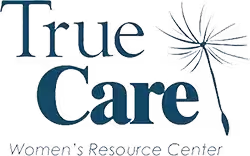A healthy relationship is built on respect, love, and compassion. How does a person develop a healthy relationship in a world that often seems so “me-centered?” We can have strong, positive relationships with others, whether among work colleagues and friends, within family, or with a partner, and still preserve our dignity and self-respect.
Here are five tips for doing so:
- Maintain honest, open communication. Say what you mean and mean what you say. Be consistent and genuine in a positive way. No one likes bullies, and no one wants to be bullied. Accusations and a critical tone make people defensive, and therefore, effective communication can be lost. According to LoveisRespect.org, “Using ‘you’ can sound like you’re attacking, which will make the other person defensive and less receptive to your message. Instead, try using ‘I’ or ‘we.’ For example, say ‘I feel like we haven’t been as close lately’ instead of ‘You have been distant with me.’”
- Be a good listener. Although we all like to get our personal point across during conversations, make sure you also LISTEN to what the other person has to say. Respect is critical in all healthy relationships, and one positive way to show respect is to listen to the other person. Actively listen – that means focusing on what the other person is saying, nodding your head and verbally engaging at appropriate times.
- Respect privacy and confidentiality. What your partner or friend shares with you should not become a gossip piece or a way to “blackmail” him/her for something you want. Remember the Golden Rule: “Do unto others as you would have them do unto you.” Respect, compassion, empathy, and trustworthiness go a long way to build a healthy relationship.
- Set healthy boundaries. According to LoveisRespect.org, “Boundaries are not meant to make you feel trapped or like you’re ‘walking on eggshells.’ Creating boundaries is not a sign of secrecy or distrust — it’s an expression of what makes you feel comfortable and what you would like or not like to happen within the relationship.” Go out with your friends without your partner and allow him to do the same, and respect each other’s likes and dislikes.
- Realize conflicts are inevitable and agree to disagree. Instead of arguing about who is right or trying to convince the other person to change his/her mind, agreeing to disagree is often the best approach. Everyone is a unique individual with their own opinions, thoughts, and beliefs. People’s preferences sometimes differ, and that’s okay. However, if your disagreements are about major things, you may need a different approach to resolve the conflict, such as an objective third party, like a counselor, pastor, or close friend. Keep in mind, though, a lot of minor disagreements and unnecessary stress can be avoided between intimate partners, close friends, and work colleagues just by agreeing to disagree.
Healthy relationships take work; people are different, and that uniqueness is often the reason we are drawn to one another. To maintain a strong, positive relationship we must remember those special qualities that brought us together and strive to show respect, love, and compassion for those we care about.
If you are in an unhealthy intimate relationship or if you are being abused, reach out for help.
Everyone deserves love and respect, not abusive language or physical violence. In Casper, contact the Self Help Center at 235-2814 for advice and assistance. If your work situation is unhealthy, if you are being harassed on-the-job, you have legal rights. Learn more about that here: https://www.eeoc.gov/laws/types/harassment.cfm
If your friendships or family dynamics are unhealthy, you may need to step away from those who mistreat you, degrade you, and/or take advantage of you. Set boundaries to take care of yourself physically, emotionally, and spiritually, and for your own sake and safety, step away from such unhealthy relationships and influences.
True Care offers a healthy self/ healthy relationships program. You will learn how to take better care of yourself, spiritually, physically and emotionally and how to make healthy choices in relationships. The program is incentive-based, which means after completing the five to seven sessions, you’ll receive a gift card. To learn more, contact our Program Director, Rebecca, at 472-2810, ext. 12.
For more information about healthy relationships, visit these websites:
https://www.psychologytoday.com/us/blog/emotional-fitness/201107/10-truths-keep-your-relationship-healthy https://www.joinonelove.org/signs-healthy-relationship/
